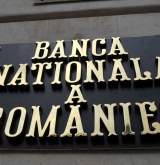At this point, the global economic downturn is presenting organizations with immediate challenges – small companies loose clients, while larger companies negotiate short-term individual projects.
For 2009, not even large companies didn’t set a profit target similar to 2008. AchieveGlobal’s turnover is 1.8 million euros, and 300,000 euros of it is profit. For the coming year, the company doesn’t expect a sharp growth, but rather a consolidation of acquisitions.
“For 2009 we didn’t plan any growth. For us and our stockholder is enough if we reach a break-even point. We haven’t included exponential growth in our business pattern. We haven’t accessed a heavily expanded market. You must have diversified product database, to serve the client for as long as possible. If we will spend less money for less employees, we decided to apply the same thing at the level of profitability,” said Diana Rosetka, Business Unit Manager for AchieveGlobal.
In October, head of Ascendis Consulting, Andrei Grosu said the business plan for 2009 of Ascendis was based on a roughly 25-30% market growth.
He had expected a rising trend of companies to invest in coherent programs, that last from 1 to 1,5 years, in order to support the development strategy. For companies with high turnovers compared to the rest of the market, the crisis didn’t bring major changes.
“For 2009, we expect a 5 million euros turnover. We hope to see an utmost 25% growth compared to this year and an after-tax profit margin of 20% of the turnover”, said Marius Opris, Ascendis partner.
Opris said it is very likely for the crisis to affect the small training companies. “Large training companies, if they have a complex budget policy combined with a strict planning and an adjustment of the development programs to the poor economic conditions, will most likely end year on profit”, he said.
For small companies however, the ability to support themselves financially and to keep or to broaden their client database will be a difficult task. MindExpress, a company with 250,000 euros turnover, has not other solution to pump money in the sales department in an attempt to promote more efficiently their products or to focus on the most popular programs – skill management training programs. Mircea Bazavan, partner at MindExpress said that after this tumultuous period, at the end of 2009, the market will resume its upward path.
Citeste si:
Calculator Salariu: Afl─â c├ó╚Ťi bani prime╚Öti ├«n m├ón─â ├«n func╚Ťie de salariul brut ┬╗
Te-ar putea interesa și:


















































































![HR [PLAY] Tech Workout - 11...](https://www.wall-street.ro/image_thumbs/thumbs/973/973fe0a3888d417feff63de42e814180-260x260-00-65.jpg?v=1714173548)









